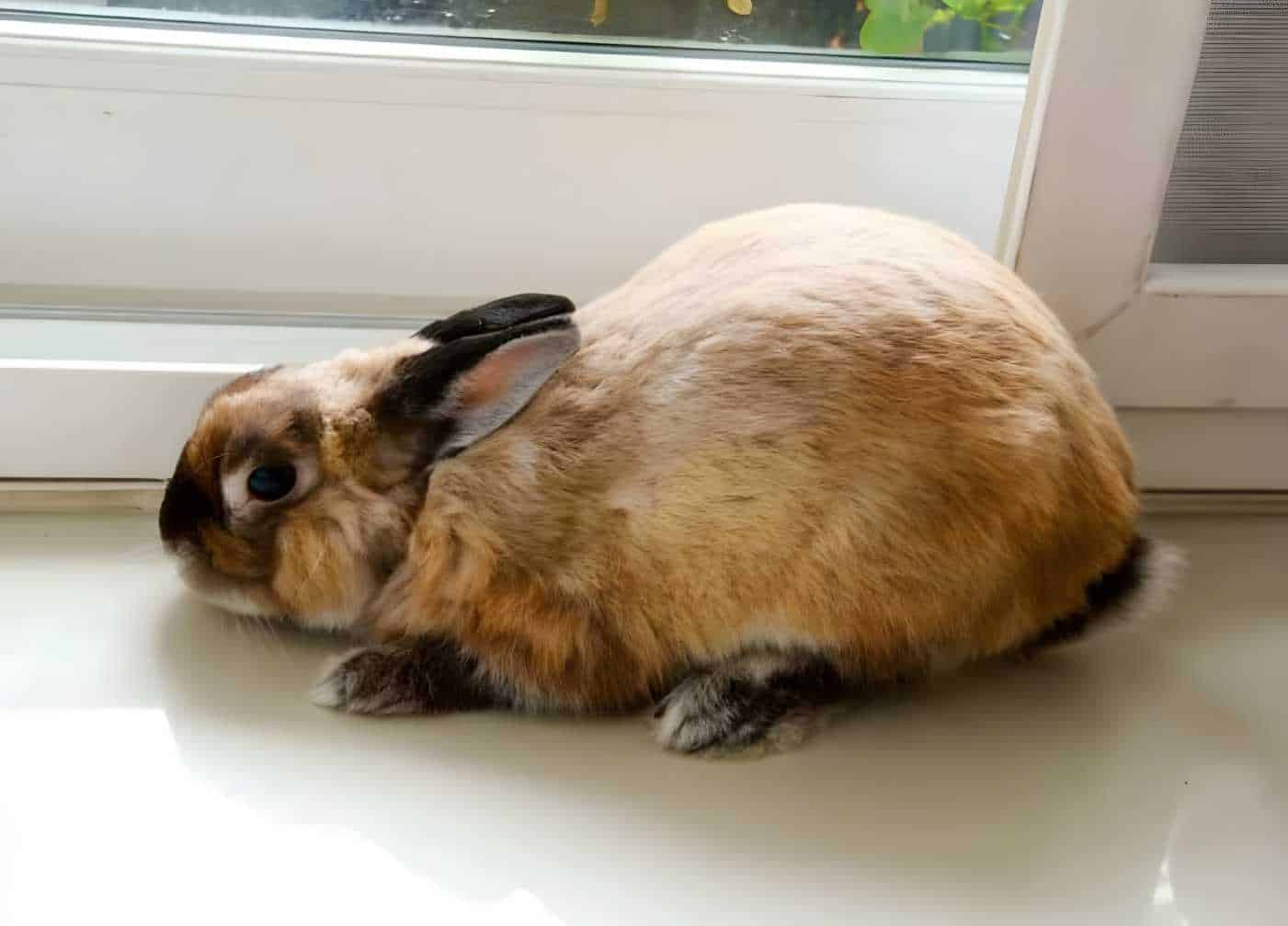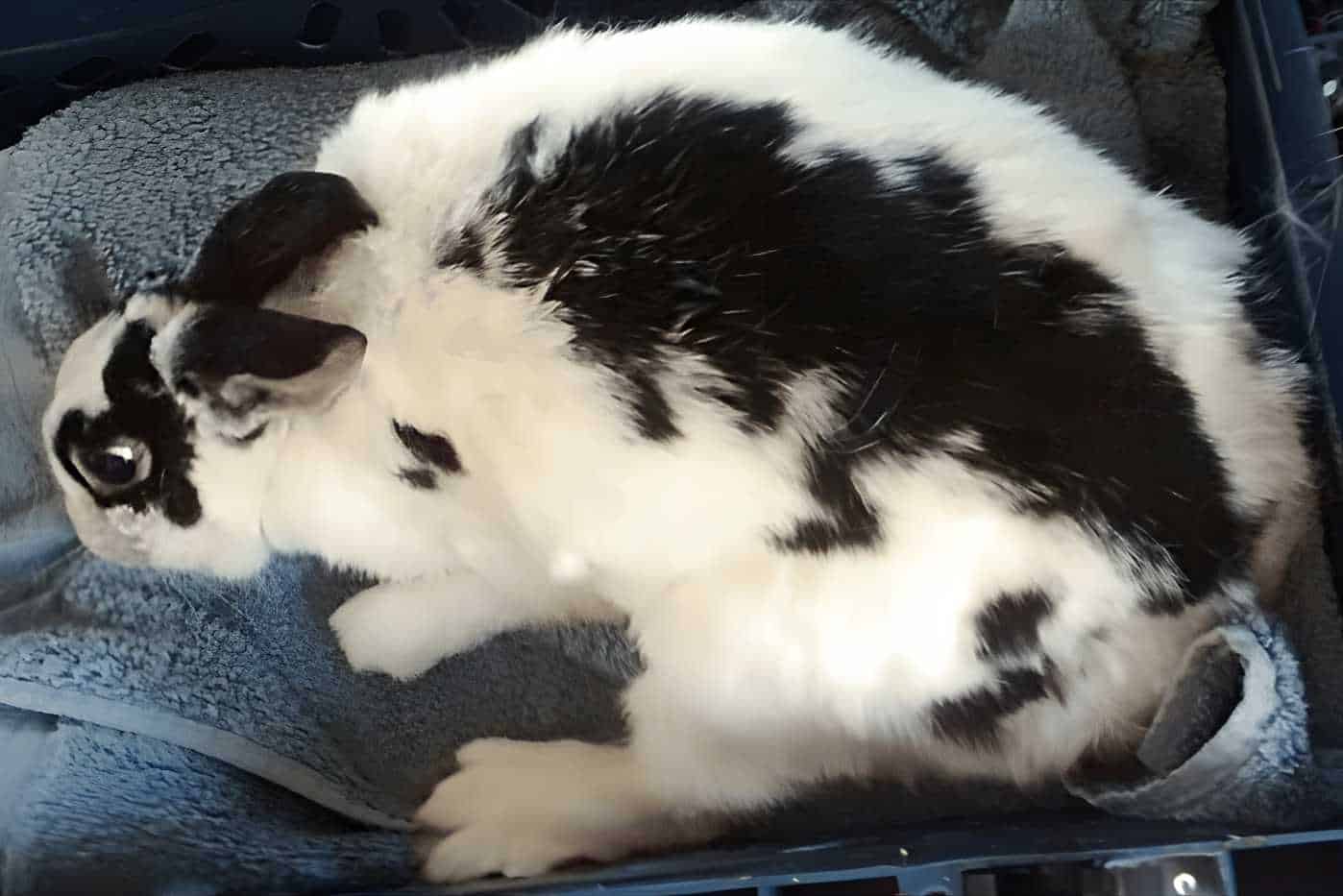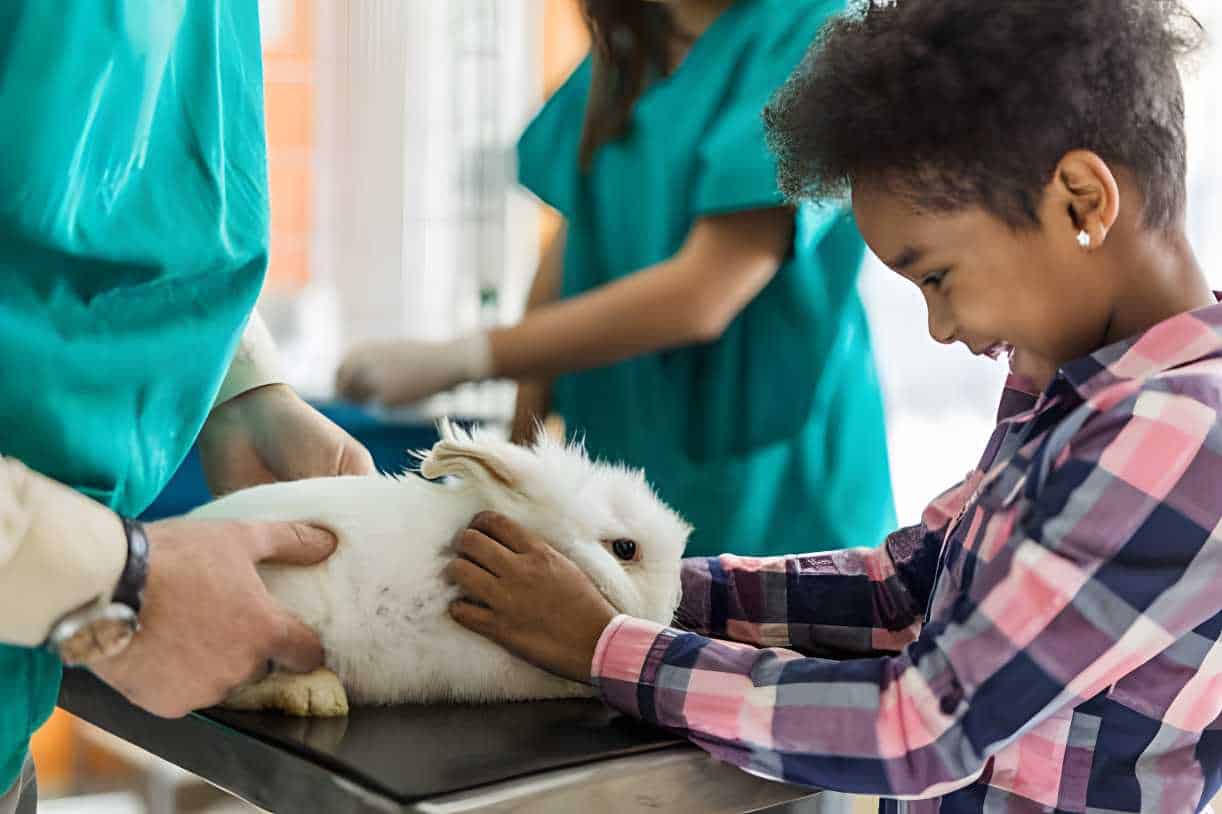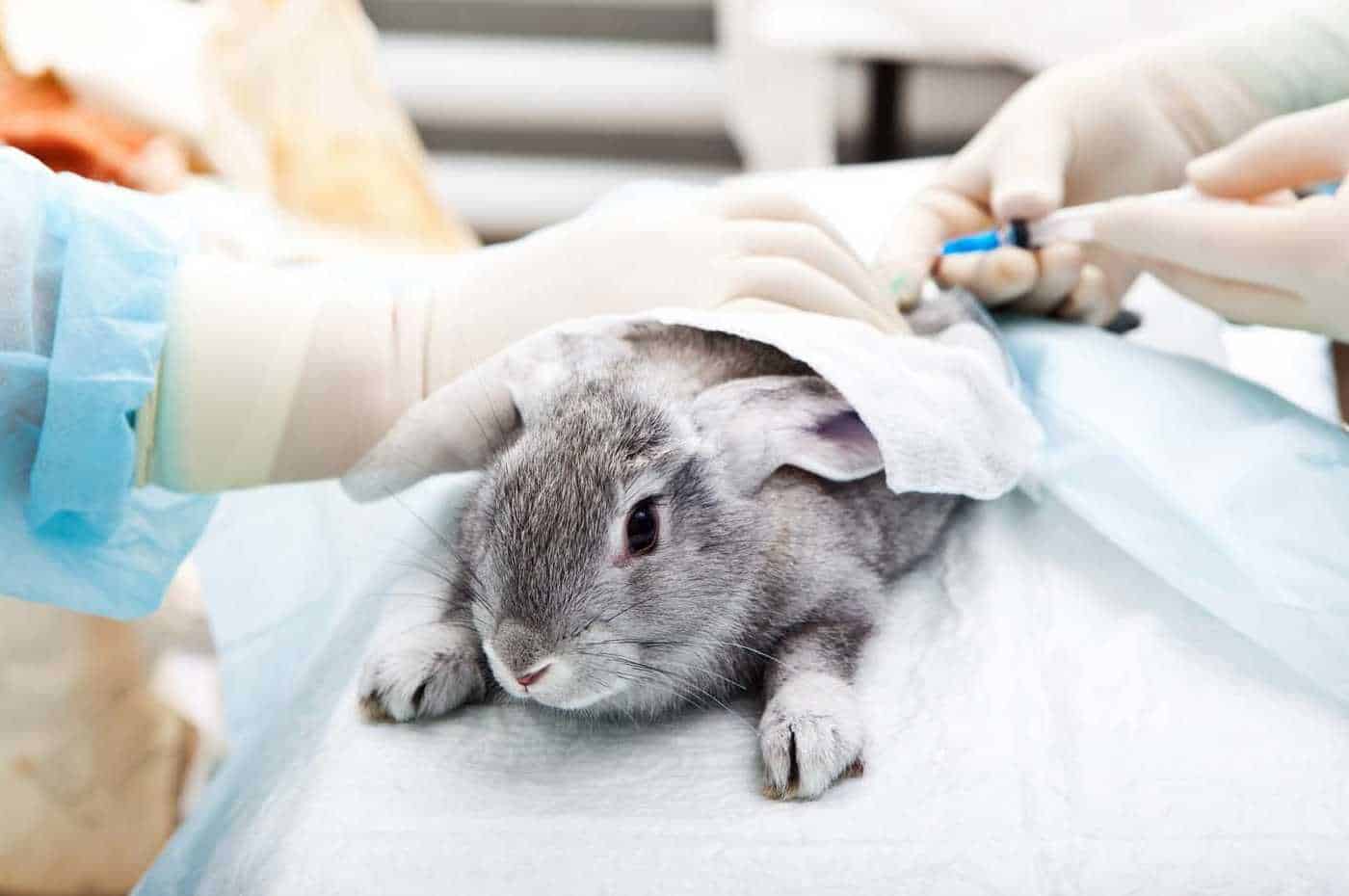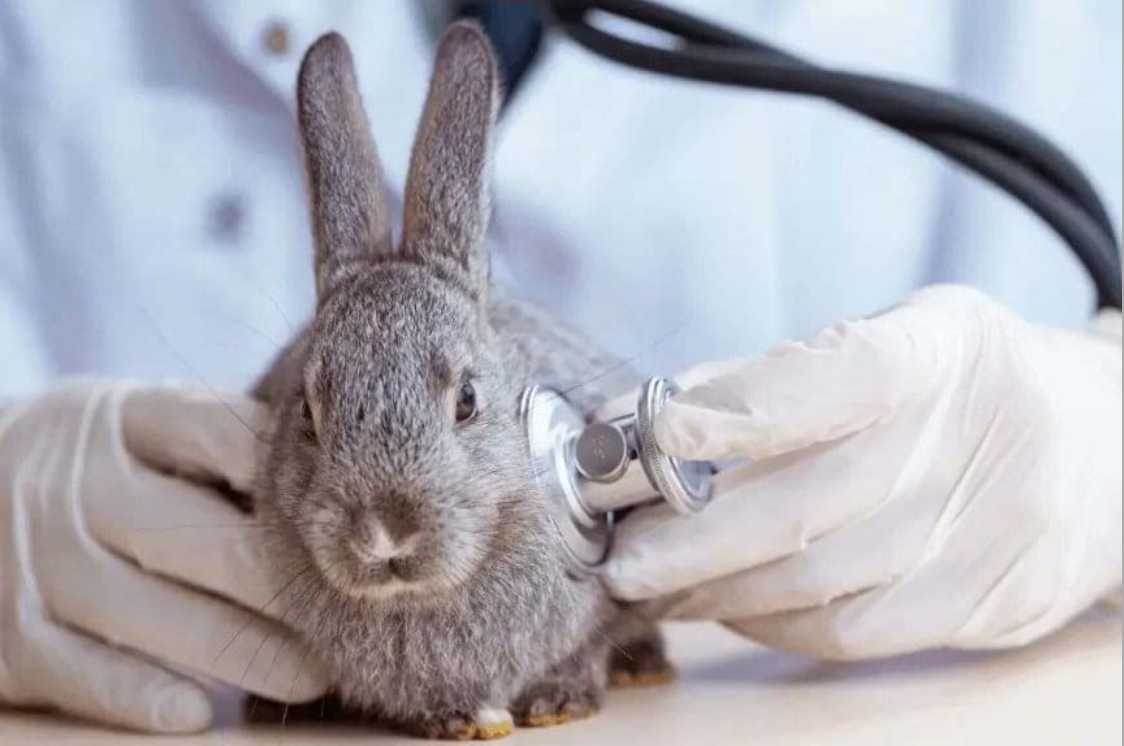Seizures are abnormalities in movement due to electrical disturbances in the brain’s nerve cells. They are uncommon in rabbits and are caused by abnormal neuronal hyperactivity. Seizures can either affect all of the brains, causing uncontrolled movements of your rabbit’s body, or a part of the brain, affecting a part of the body.
How Do You Identify Rabbit Seizure?
Identifying seizures in your rabbit can sometimes be challenging. Less severe episodes are usually accompanied by unnoticed movements. On the other hand, seizures can also be intense and scary.
Your rabbit can lose consciousness and show obvious symptoms like severe shaking, convulsion, partial blindness, etc. Focal seizures affect only a part of the brain, making the symptoms less severe, while Grand Mal seizures affect the whole brain. Common symptoms of Grand Mal seizures in rabbits include,
- Uncontrollable movements of the body: convulsion is the most apparent sign of rabbit seizures. Your bunny will lose total control of its body and shake excessively.
- Loss of consciousness: during Grand Mal seizures, your rabbit can lose total consciousness of what is happening, just like humans do when convulsed. After waking up, it’ll look confused.
- Abnormal head bend: tilting the head abnormally is also a symptom you should look out for. They might tilt their head to one side while losing control of themselves.
- Blindness: can be partial or total during a convulsion.
- Ear Canker: pus is usually found in your rabbit’s ear, which might have been a cause for the seizure.
- Fainting: it is rare for your rabbit to faint, and it can only happen if the seizure is severe.
- Signs of Distress: your rabbit will be unusually withdrawn and tired. You might notice that your friendly rabbit shows signs of stress or becomes hostile at regular intervals.
- Mental disorganization: the brain will be confused, and your rabbit might behave abnormally by jumping around excessively.
Symptoms of focal seizures can include;
- Twitching of the ear
- Paralysis of a body part
- Bubble gum chewing seizures (irregular movement of the mouth like chewing gum without the presence of food in the mouth).
Grand Mal seizures have more obvious symptoms compared to Focal seizures. The effects of the two also vary. While lasting effects like permanent brain damage can occur due to Grand Mal seizures, focal seizures usually have little or no effect when adequately treated.
What Causes Rabbit Seizures?
There are various causes of seizures in rabbits : intracranial and extracranial. Only an expert veterinarian can diagnose the leading cause of your rabbit’s episode. Intracranial causes are the underlying diseases in the brain that causes seizures. They include;
- Cancer: lung, skin, colon, and mammary cancer in rabbits are more associated with seizures. However, lung cancer primarily causes these seizures due to respiratory infections. Other cancers can also affect your rabbit and lead to death.
- Hypoxia: is an improper flow of oxygen in your rabbit which can damage various organs like the lungs, kidneys, and brain. This can, in turn, lead to brain seizures and death.
- Head Injury: when your rabbit is affected by a brain injury that is not well treated, it can affect the brain. Sometimes you might not quickly notice internal brain injury, so it is essential to take your rabbit for a check-up.
- Virus: Myxomatosis is a poxvirus caused by bites from mosquitoes, mites, flies, and infectious injuries from thorns. It can lead to death just days after the virus symptoms like seizures.
- Encephalopathy: Encephalopathy happens when your rabbit’s brain malfunctions. Brain damage can lead to coma, seizures, and even death.
- Febrile convulsions: are mainly caused by fever and changes in temperature.
Extracranial causes are external. They include
- Intravascular clots: blood clots in your rabbit’s brain can affect the important parts, eventually leading to seizures.
- Contamination from toxic plants and chemicals: toxic food and plant materials are bad for rabbits as they affect the nervous system, leading to brain damage and seizures.
- Metabolic disorder: Metabolic bone disease (MBD) is a neurological disease that affects the nervous system and other body parts, and eventually results in organ failure and seizures.
- Stress: excessive handling of your rabbit also cause seizures.
Rabbits with underlying medical conditions such as cancer, ear infections, and kidney or heart diseases are at a higher risk of having seizures.
Can Rabbit Seizures Be Treated?
Treating seizures can be confusing when you don’t know the exact cause of your rabbit’s episode. The best way to treat seizures is to take your rabbit to a veterinarian for adequate care. However, before taking your rabbit to the doctor, you can apply a few first aid treatments.
- First, while your rabbit is having seizures, hold it calmly and gently but not too tight.
- Cool your rabbit down by rubbing its body with a wet towel (to help lower the temperature).
- You can talk gently to your rabbit while you comfort it.
- It is essential to note the time range in which your rabbit has these seizures (noting the time enables us to track the episode, to know the specific time it happens, how long, or how frequent).
- Visit the veterinarian as soon as possible if your rabbit has had more than one seizure in less than 24hours. If your rabbit has grand mal seizures, whose effects are more severe than focal seizures, it needs to be hospitalized for further monitoring and treatment and prevent complications such as permanent brain damage.
Some seizure control drugs you should know of include:
- Antibiotics are often administered to rabbits when they are taken to doctors. In cases where the reason for seizures is yet known, seizure control drugs are prescribed to control the episode until a diagnosis is made. Your rabbit will most likely be sedated with Midazolam to aid muscle relaxation.
- Diazepam is also used to control extreme cases of seizures that last for more than five minutes.
- If Diazepam or Midazolam does not work,alfaxan or propofol is often used as an alternative to control seizures.
How Do Rabbits Recover From Seizures?
The recovery of rabbits also depends on the cause and type of seizure. While some rabbits fully recover from an attack, others need close monitoring and hospitalization to recover fully. It takes a few hours or days after the mental confusion for them to balance fully. Ensure you follow the treatment steps listed above if you want your rabbit to get better.
How Much Does It Cost To Treat Rabbit Seizure?
The cost of treating seizures and monitoring your rabbit’s health is quite reasonable.
- It depends on the severity of the seizure, whether your bunny needs to be hospitalized or will do well with domestic treatments, whether it responds to the drugs, and if additional money will be paid for tests.
- After diagnosis, the vet prescribes drugs. The prices of the drugs matters too. If it’s not a fatal seizure, treatment costs will be cheaper. However, if it’s a severe case, the drugs will be more expensive.
- The cost of hospitalization needs to be considered. Treatment doesn’t take long; while some recover in hours, others might take a few days. The total cost of treating a rabbit seizure in a year is 200$ – 500$ at most, including buying drugs and paying your doctor. It differs according to the hospital, though.
Can Rabbit Seizure Be Prevented?
Seizures happen suddenly and can only be prevented if you visit your veterinarian frequently. If your rabbit has a history of medical conditions, you should see your veterinarian more often for regular check-ups for any other disease that can lead to seizures.
The doctor needs to run a full-body test to diagnose and avoid episodes in your rabbit. Below are some ways you can contribute to your rabbit’s welfare though:
- Avoid stress: avoid handling your rabbit roughly. Allow your bunny to rest properly.
- Avoid giving your rabbit toxic plants to eat: rabbits cannot digest poisonous chemicals, and their food should be carefully picked and bought from verified stores. Feeding shouldn’t be a problem if you stick with giving them hay.
- Proper medication and care: Your rabbit needs to use prescribed medications correctly. Also, take good care of your rabbit and prevent it from getting bitten by mosquitoes, mites, or flies that can infect it with viruses.
- Avoid head injuries: Head injuries can lead to brain damage; therefore, they should be thoroughly avoided. Also, every other form of damage should be avoided. Keep your rabbits away from thorns and sharp objects as they might be infected with viruses.
- Medical check-up: Preventing dwarf rabbits and other breeds from seizures can be tricky, making it essential to visit your veterinarian for a checkup regularly. Avoid home medication for your rabbits; only the doctor can diagnose and prescribe the right treatments.
- Taking good care of your rabbit is important too: rabbits, like humans, need proper care and pampering. They need to relax often and have their own calm space.
Summary
Rabbits rarely have seizures, but ensure you diagnose and treat them early when they do. Seizures that aren’t treated often lead to death. Therefore, it is essential to take proper care of your rabbit and visit your veterinarian regularly to run a complete check.
Rabbits with parasitic infections, degenerative diseases, ear infections, and other disabilities should be paid extra attention as they are more prone to seizures.
